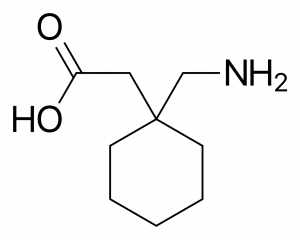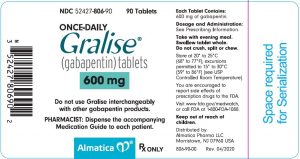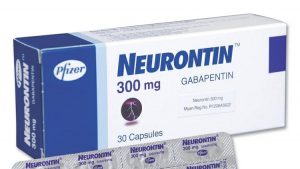Gabapentin: What Is It??

The prescription painkiller gabapentin, also referred to as Neurontin (due to the brand name), belongs to the drug class called Gabapentinoid. In addition to treating epilepsy, restless leg syndrome, hot flashes, and neuropathic pain, this medication is classified as an anti-convulsant. Gabapentin addiction and abuse still emerge in many patients, despite its use as a less-addictive alternative to opioids.
The structure of gabapentin is similar to that of Gamma-aminobutyric acid (GABA), a brain chemical impacting the nervous system. Nerve pain, anxiety, and even poor sleep can be alleviated by its relaxing and calming effects.
Gabapentin is often prescribed to treat nerve pain, the withdrawal effects from alcohol or cocaine, restless leg syndrome, diabetic neuropathy, fibromyalgia, and seizures. It reduces seizures and eases nerve pain by altering calcium channels.


Aside from Gabapentin’s potential addictive nature, this medication can also cause mood swings, suicidal thoughts, and changes in behavior. In addition, it can lead to fatigue, fever, sleep disturbances, changes in appetite, and chest pain.
How do people abuse gabapentin
People who already have opioid addictions or other drug addictions are more likely to abuse gabapentin. As a side effect, Gabapentin intoxication can cause a feeling of calm, euphoria, and a feeling similar to that of marijuana.
Researchers in Kentucky found in 2013 that among 503 adults who reported illicit drug use, 15% reported using Gabapentin in addition to other drugs used for their highs in the previous six months.
Almost a quarter of patients in a study with a representative sample of the national population were getting more than three times their prescribed amounts of opioids and gabapentin to supply their addictions. The use of the drugs without prescription is becoming increasingly prevalent. Policing is challenging due to the legalities associated with the drug. More and more states are classifying Gabapentin as a controlled substance because of its growing use.
As a prescription medication, gabapentin is one of the most popular in the United States due to its ability to treat multiple ailments. According to GoodRx, it was the fifth-most prescribed medication in the country in May. Even though it has a low potential for abuse, its high likelihood of being abused when combined with other substances results in widespread harm and addiction.
Gabapentin Addiction Signs
Gabapentin abuse can have the following effects:
- Sleepiness
- Problems coordinating
- Tremors
- Feeling dizzy
- A depressive state
- Feelings/behaviors associated with suicide
- Mood swings
- Memory loss
- Fear of anxiety
- Speech difficulties
- A lack of pleasure
These symptoms should be observed, and other red flags should be heeded, including the possession and abundance of pill bottles. Health, livelihood, and safety can suffer from these effects.
Early recovery Gabapentin users often abuse the drug because high doses (800 mg or more) can cause a euphoric high that does not show up on drug tests. Those who abuse gabapentin typically combine it with opioids in order to attain their desired high, posing a danger and a potential threat to their lives.
A fatal overdose is possible with Gabapentin, either alone or combined with another drug. In contrast with opioid overdoses, there is no antidote available for the treatment of Gabapentin overdoses. In the event that you see signs of an overdose in your loved one, such as sleepiness, weak muscles, weakness, drooping eyelids, stomach upset, and sedation, get them to the hospital immediately.
Gabapentin dependence signs and symptoms
- Exaggerating symptoms or lying to doctors
- To get extra doses, go to multiple doctors
- Changing doctors when the original doctor will not prescribe medications
- Changing social preferences and/or circles
- Grooming habits and personal hygiene are changing
- The drug is constantly on your mind
- Anxiety about not being able to obtain the drug
- Despite legal, financial, or social consequences, refusal to quit
- Experiments with quitting that failed
Gabapentin Addiction Treatment
When Gabapentin is taken frequently and excessively, it can lead to drug dependence. People develop this kind of dependency when they become so used to taking drugs that they need them to function normally. It is not recommended to quit these drugs cold turkey, since doing so can result in withdrawal syndromes of varying intensity. Stress, sleeping disorders, nausea, and pain are some of these symptoms. As well as increasing the chance of having a seizure, quitting can lead to life-threatening health issues, including personal injury. When attempting to quit, it is recommended that you do so in a rehab facility or during a medical detox.
Is it Possible to Overdose on Gabapentin?
It is difficult to overdose on gabapentin, despite its withdrawal side effects. Despite ingesting very high levels of the substance, scientists have found that most people suffer only mild to moderate physical and mental side effects. Only two peer-reviewed cases of death related to gabapentin toxicity (overdose) have been reported so far.
The number of gabapentin abuse suicide attempts has increased in recent years, despite this low statistic.
Therefore, gabapentin can be considered a relatively safe drug, but taking it in large amounts is still not recommended. Gabapentin, even when taken at relatively low dosages and for a relatively short period, can cause particularly unpleasant withdrawal symptoms.
Symptoms of gabapentin overdose
Side effects from an overdose of gabapentin are usually associated with a slowed up body system overall. Expect drowsiness, weakness of the muscles, fatigue, and droopy eyelids. Diarrhea and sedation are also symptoms of gabapentin overdose. Gabapentin is formulated to prevent seizures by reducing the rate of brain misfiring.
Gabapentin is a powerful drug that must be tapered slowly to avoid some of its more severe withdrawal side effects.
Source 1: https://www.addictioncenter.com/drugs/gabapentin/
Source 2: https://www.therecoveryvillage.com/gabapentin-addiction/overdose/

